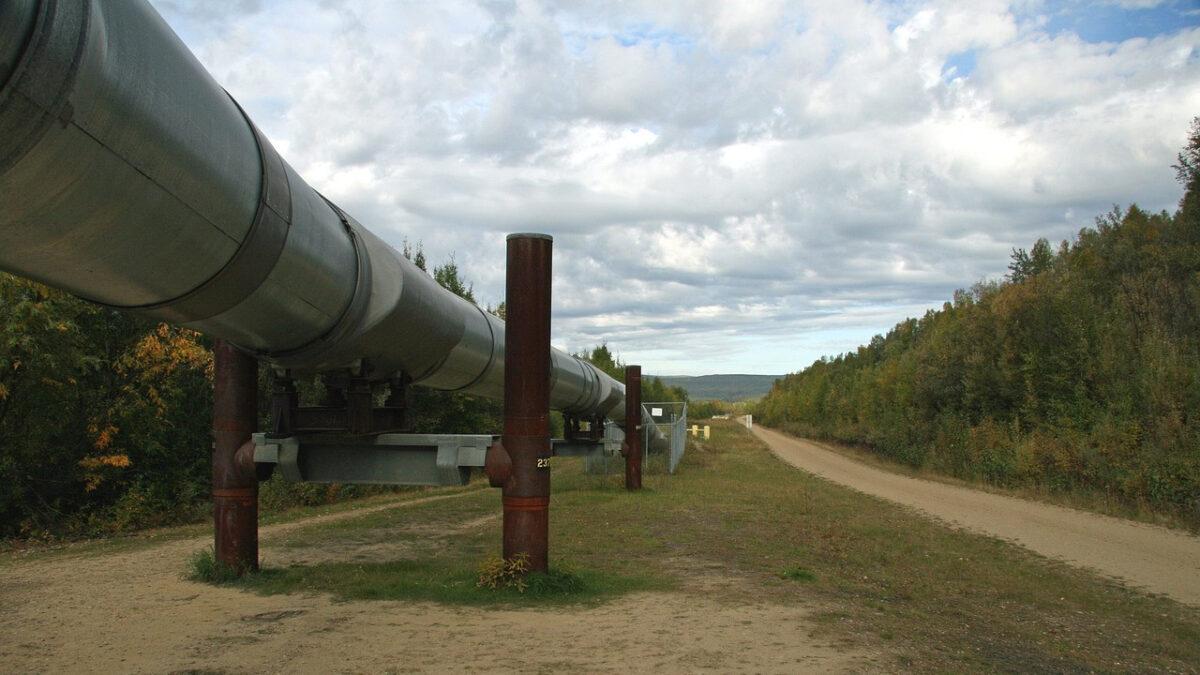You must have heard by now that Alberta is contemplating leaving Canada. From there, many questions will follow. Will it become an independent nation? Will it team up with other Western Canadian provinces to form a separate Western Canada, distinct from the original Canada? Will it seek to join the United States? For clarity, we must look back at the Keystone Pipeline incident.
Keystone Pipeline
The Keystone Pipeline was initially proposed in 2008 to transport crude oil from Alberta to the United States, crossing into the United States at Montana and ending in Texas.
The Obama administration rejected the project in 2015. Trump revived it in 2016. And cancelled again on day 1 of the Biden administration.
In 2025, Trump tried to revive it, but the political baggage resulted in Canada abandoning the project. So, what happened exactly?
What is the Keystone Pipeline supposed to do?
Alberta is a petroleum-rich area. Its oil sand supposedly has more petroleum than Saudi Arabia. But Alberta is also landlocked. Rather than transporting the oil, it would be simpler to pipe it.
Going through to the West is prohibited by the North American Rockies. To the east is far too long. A much easier route would be through the United States, which happens to be Alberta’s biggest crude oil client.
When constructed, the Keystone Pipeline can safely carry 830,000 barrels of crude oil per day. That’s a continuous flow of petroleum, day and night, 24/7. A great source of revenue for Alberta.
Opponents to the Keystone Pipeline cited environmental issues related to potential leaks, climate change impact, indigenous rights, impact on wildlife, and water quality impacts. As a seasoned civil engineer, I believe these are bogus arguments.
The true reason for opposing it is politics.
The Keystone Pipeline was proposed in 2008 during the Republican administration in the US and the Conservative Party in Canada.
Earlier, I cited the pipeline project’s rise and fall in Republican and Democratic presidencies–from Bush to Obama, then Trump, and Biden. Now, let us look at Canadian politics.
The Canadian Liberal Party was created in Quebec in 1867. It gained momentum after WWII, and it elected Pierre Trudeau as its first Liberal Party Prime Minister in the 1960s.
Their policies were, well, liberal. They promoted pro-environmental policies, centrally managed economics, and pro-Quebec policies. A very Ottawa-centered government.
From 2006 to 2015, Canada was led by the Conservative Party, and Stephen Harper as its Prime Minister. During that time, the Keystone Pipeline was proposed and welcomed by both Canada and the George W. Bush administration.
The project slowed down under Obama, and it was eventually canceled in 2015, after extensive work had been done on the environmental document and right-of-way issues. 2015 was also the year that the Canadian Liberal Party returned to power and the ascension of Justin Trudeau.
Canada did more to return to their liberal policies. They double down on it, making their policies extreme.
On the Social front, Canada legalized cannabis, promoted DEI, promoted and legalized assisted suicide, and paid childcare.
On Infrastructure, Canada promoted public transit mainly to the northern regions, and slowed transportation in their southern regions.
On Immigration, Canada opened its border with multiculturalism’s goals.
On the Environment, Canada banned plastic, adopted a Net-Zero Emission policy, and implemented Carbon Pricing.
The Carbon tax is particularly injurious to Alberta and its petroleum industry. It made new exploration impossible and continuous operation difficult. All the while, Ottawa demands oil revenue from Alberta. Canada is anti-petroleum. They did everything they could to kill the Keystone Pipeline project.
Trump Factor
Canada is very aware of what’s going on with the United States. Trump won the 2024 election, with both electoral college votes and popular votes. Trump also campaigned on freeing up energy exploration, energy independence. The famous Drill baby Drill line. He also ran on reducing regulations and common-sense governing. Everything that Ottawa is not.
Additionally, Trump’s message resonated around the World. Italy followed suit, and so did Asia, which dares to stand up against an oppressive China.
As for Alberta, Alberta took courage. It emboldened their governor to demand changes from Ottawa. The demand was for Ottawa to ease its regulations and build the Keystone pipeline.
While this story is unfolding before us, it is not likely that Ottawa will yield. Of course, they will say that they will work on it, and let the voices of the people be heard, but these words are void of actions. Mark Carney is excellent at giving lip service.
Another important factor to consider is the Paris Climate Accord. Trump exited the Paris Climate Accord, but Justin Trudeau embraced it fully. That was the reason for the Carbon Tax and centralized engineering projects approval via their Environment Czar. This and tariffs resulted in animosity between Trump and Trudeau.
Alberta
Alberta is stuck. Its economy is largely based on oil. With Ottawa’s pro-environmental and anti-petroleum policies, Alberta’s economy suffered. On top of that, Ottawa disproportionately increased its taxes to fund the rest of its country. Albertans suffered. Their discontent grew. The Canadian confederate government was banking on the fact that the majority of the Albertans would remain loyal to Canada, and a revolt would not happen.
With Trump openly chiding Canada to be the 51st State, Albertans took courage. A referendum is being worked on to separate from Ottawa.
My Perspective
I will cheer for Alberta. When it ratifies its action to become independent from the rest of Canada. I will cheer again, more loudly, for Alberta to join the United States. Welcome, Alberta, the 51st State. Their language and their culture are similar to America. They will be an excellent fit.
What more. It is a lesson that we can learn from them. Liberal policies are oppressive. They claim that their policies are for the benefit of the whole. They also believe that they can convince the rest of us to follow them. It took an example from Trump to help the Albertans realize that they have their rights too. Americans believe that our unalienable rights are derived from our Creator.







3 replies on “Alberta and Keystone Pipeline”
I’d prefer Alberta was tied to us as Puerto Rico is vs becoming a state.
Technically, the Constitution prohibits the United States from acquiring territory that does not eventually become a State. Many politicians began ignoring this provision in the late 1900’s when the US became as colonialist as the Europeans, see Haiti, the Dominican Republic, Panama, Cuba, Hawaii, Venezuela, and the Philippines. Puerto Rico should long ago either have been given Statehood or independence. One can argue the same for other protectorates like Guam.
If Alberta does indeed secede, the United States should immediately move to offer Alberta statehood. If Canada doesn’t want that oil…
Alberta will get away from Canada about the time eastern Oregon becomes a part of Idaho, NEVER HAPPEN. “The Clarity Act” passed in Canada in 1999, gives most of the power to the eastern side of the nation. The Canadian constitution also requires an amendment before anyone can bail out. There is a process, but you put a few dozen government lawyers together (sorry all you legal types) on this issue and it will drag along for decades, until interest subsides. Any mention of an insurrection situation and the “Feds” show up and run things for a few more decades. If we here in the United States could just get that one sentence law (or executive order) to quit changing our clocks twice a year? Hahahaha. That will never happen either. Shout out to Bob N. I’m an ex-neighbor at the top of Sorrel Drive, watched when they built your new home. We talked by the roadside a few times on my daily walks. Had to move to Fruitland (medical). Have a great day, love the newsletter!